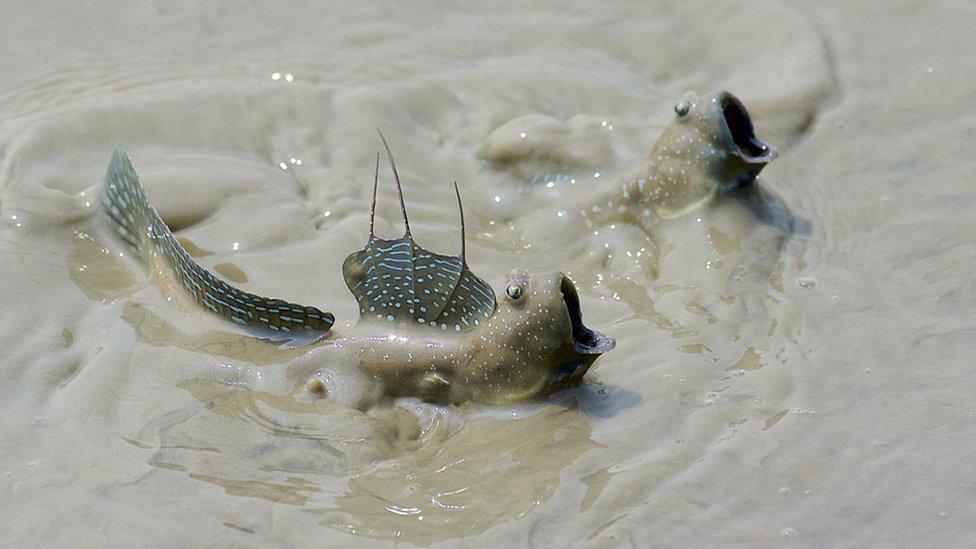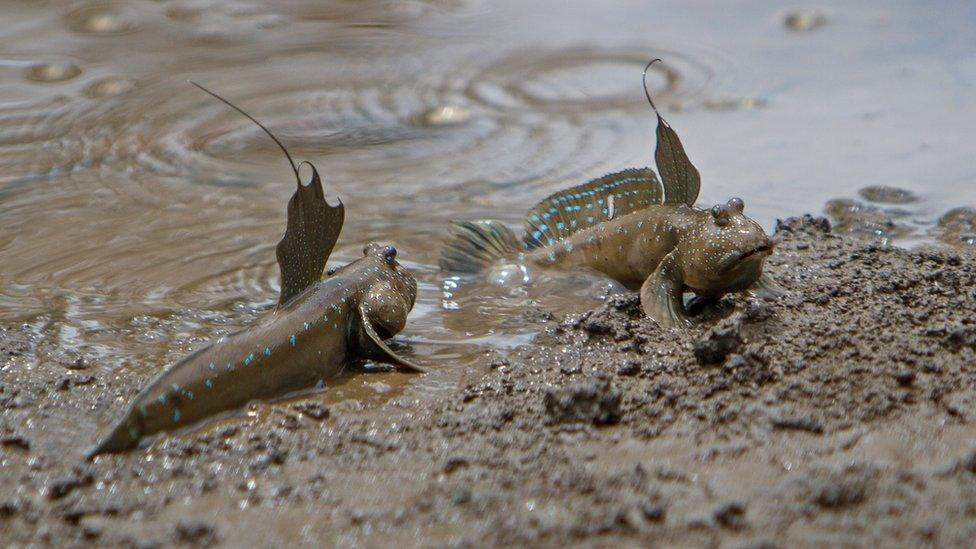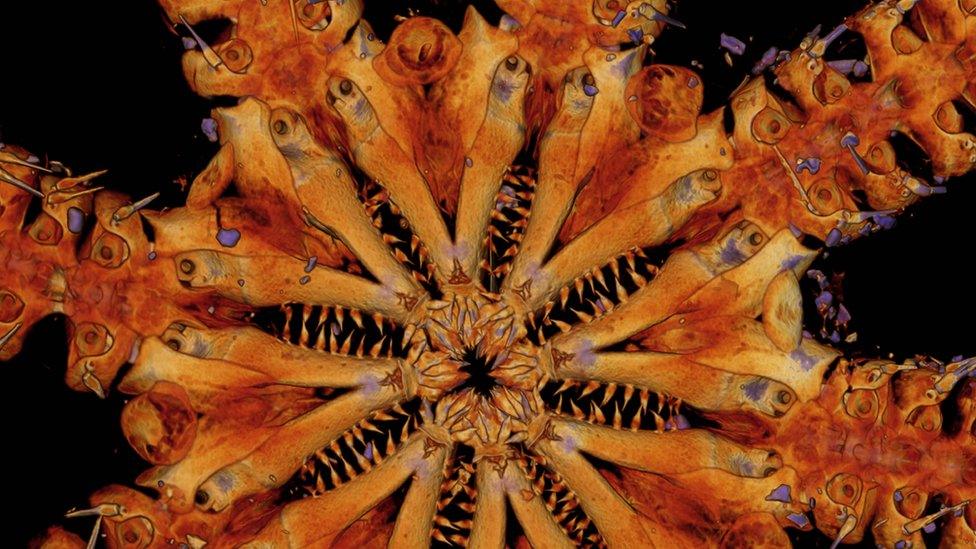Mudskippers: Blinking fish give insight into how life adapted to land
- Published
- comments

The mudskipper is the only fish than can blink
A blinking fish has provided scientists with clues on we may have adapted from living in the water, to living on land.
Scientists think that life on Earth started in the ocean around 3.5 million years ago, and as oxygen in the atmosphere increased over time, these organisms slowly moved to living on land.
Researchers wanted to better understand how animals adapted from water to land, so they studied the mudskipper fish, who live on land and water, and are the only fish that blink.
Why do these fish blink?

Scientists think that blinking in humans evolved during the transition from water to land, because blinking is seen in land animals, but not often in aquatic animals.
Experts at Penn State University in the US wanted to find out more about this evolution, so they filmed the mudskipper, putting cameras in their tanks, to see how they went about moving between water and shore. Mudskippers are semi-aquatic creatures living both on land and in water.
They found mudskippers blink for the same reasons that humans and other animals do - to clean and protect the eyes.
Thomas Stewart, assistant professor of biology at Penn State University in the US, said: "Animals blink for many reasons. It helps us keep our eyes wet and clean, it helps us protect our eyes from injury, and we even use blinking for communication."
Why are blinking fish an important discovery?
The professor says that the transition to life on land involved many changes to animals bodies, including how they moved, breathed and feed.
"Based on the fact that mudskipper blinking, which evolved completely independently from our own fishy ancestors, serves many of the same functions as blinking in our own lineage, we think that it was likely part of the suite of traits that evolved when tetrapods (four-legged animals) were adapting to live on land," said Thomas Stewart.
Having the opportunity to study how and why this behaviour first evolved provides an amazing opportunity to learn more about the way humans came to be.
Blinking may seem like a small thing but it's important to so many animals and crucial in the ability to be able to see.
Understanding how and when we started to blink, helps researchers discover what happened during the transition between creatures living in water and then on land.
The study of the mudskippers suggest that animals evolved blinking as a land behaviour to adapt to the challenges of the different environment.
- Published16 February 2023
- Published23 June 2021

- Published28 July 2022
